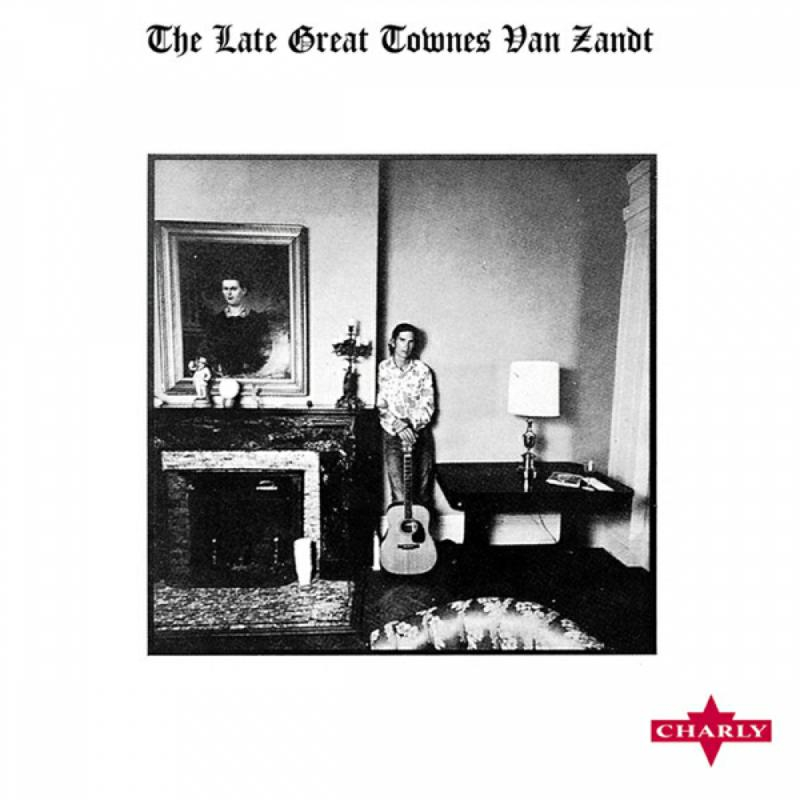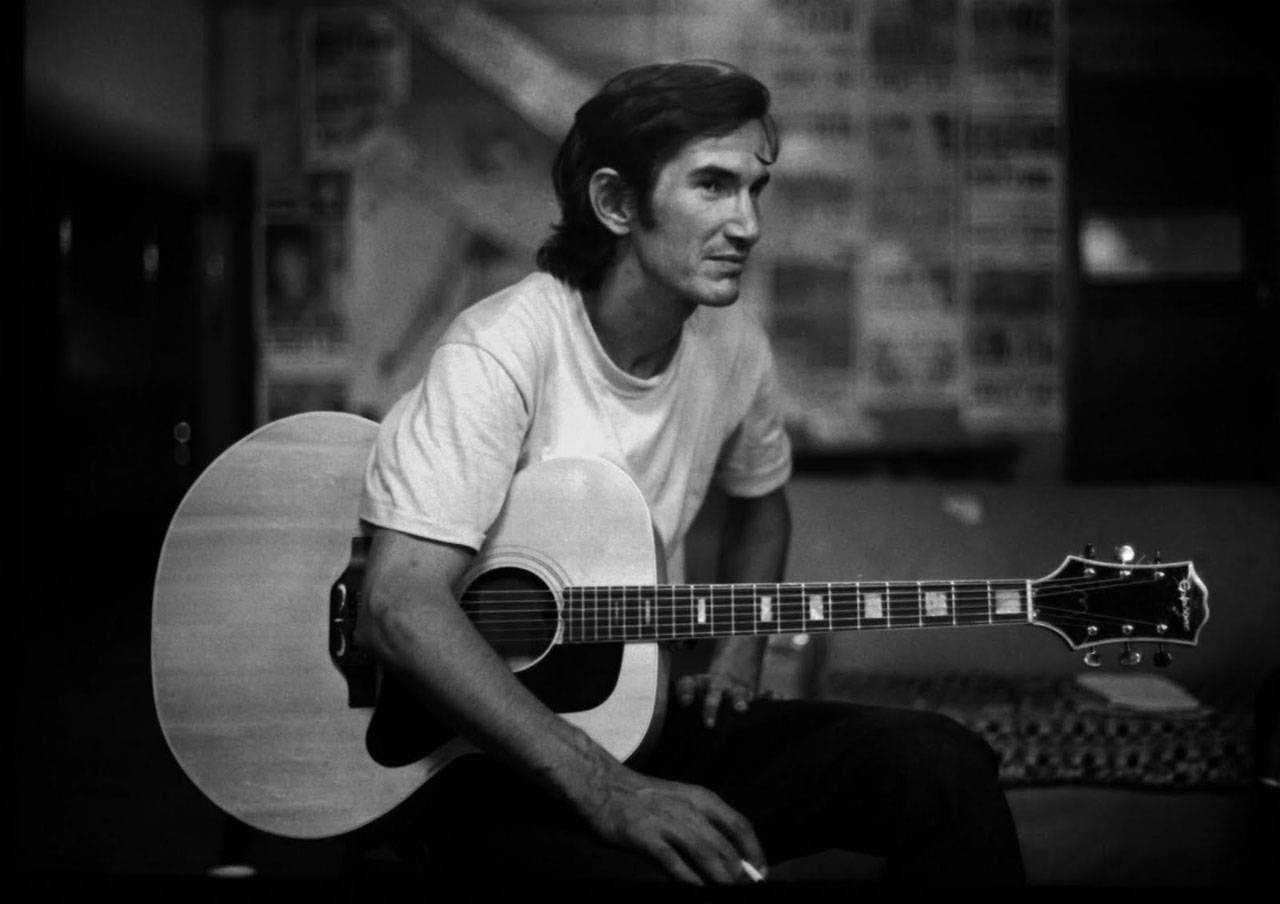In these last articles Trex Road has often traveled through time and today it does so to tell you about a man who is the quintessence of being independent. There are artists in the history of music who in life never picked up the praise and recognition they deserved. Some, even after their departure, were celebrated for their talent and importance. But there is one who did not suffer for this situation, indeed he was happy and now in heaven he will be smiling, in a bitter way, thinking that, even today, 78 years after his birth, 25 years after his untimely death and 28 from his last release (with him still alive), some insiders and many fans consider it important, very important. A storyteller with a unique talent for what his songs meant, his lyrics so evocative, melancholy and in their way tragically premonitory. That artist is named after Townes Van Zandt from Fort Worth, Texas. One that for lyrical and intellectual ability we can certainly, without being blasphemous, alongside the great Hank Williams and Bob Dylan. Townes was the son of oil men, of the Texas bourgeoisie, but the electric discharge that struck him when he watched the Elvis Presley concert at the Ed Sullivan Show on TV was such that his life changed forever. He became a sort of black sheep of his wealthy family and dedicated his life to music, a magnet that drew him without escape. It wasn’t money, not success, but the expression he could give himself by singing his songs. Pieces that had a style that was inspired by the great acoustic Texan bluesmen, like Lightning Hopkins, for whom he opened some concerts at the beginning of his career, but also by the great folkmen like Dylan or his fraternal friend Guy Clark (Texan like him) or rockers with huge fame like the Rolling Stones. Where there was emotion and where there was existential melancholy, Townes found himself there and absorbed everything to create his own unique style that made numerous proselytes since his first album in 1968 (For The Sake of Song) until this The Late Great Townes Van Zandt in 1972, which is considered, almost by all, his masterpiece. A jewel composed of 11 wonderful frescoes in music, a dry music, a sad narrator voice, a few acoustic guitars, a few appearances of electric, violins and choirs. That’s all, but a poignant and sparkling beauty. A life marked by a truly terrible evil to manage in public (he was a manic depressive), then medicines mixed with alcohol and drugs and that feeling flaunted to the four winds of a life that would be short and that death would soon reach him. He wasn’t afraid of it, he almost wanted it and the title of this ’72 album is there to remind us, as if it were a posthumous album of someone who had just disappeared. Townes resisted his sad and gloomy songs of love and betrayal, his living in a house in Nashville for years without gas, electricity or heating, his love of guns, and his hatred of notoriety. When he returned home to Austin, the managers and promoters were looking for him, he gave concerts in small clubs where, if the night was right, he gave away unforgettable poems and unique stories, while, if his mind left him, We remember scenes stolen at the end of the career of his great inspirer Elvis from Memphis, collapses and falls, like the one that then due to complications due to the fractures and his dependencies, led him to the premature (and at this point desired) death on 1st January 1997. January 1st as the great Hank Williams with whom he shares the essential importance for country music. A record that is difficult to tell, like all his to tell the truth, but it must be tasted calmly, with brains and with the right soul. It’s not easy to listen to Townes Van Zandt’s songs, but good things are never easy. Acoustic guitar, scratchy and incisive as that of the opener No Lonesome Tune where the voice of Van Zandt speaks to us, he does not sing and does not look for easy harmonies, but enters with that melancholy that became his trademark. The same in the next Sad Cinderella, where the choirs increase this feeling that grips the soul. And almost to break a little’ this heavy air, comes the country rock streaked with blues by German Mustard (A Clapalong), almost a piece by bluesman of the delta, of those who the founding fathers of the genre sang at the crossroads on dusty roads and in the midst of immense cotton fields. But that feeling does not go away and comes back with arrogance in the poignant ballad Snow Don’t Fall, which tells a love broken by the death of his beloved, a jewel that leads to tears, so sincere and without filters. The piece is enriched by strings and an almost brilliant arrangement. A piece that should be part of humanity and instead many, too many ignore. His colleagues, who knew his greatness, tried to remove him from the oblivion of the general public: Willie Nelson and Merle Haggard brought to the top of the charts one of his most beautiful pieces, the wonderful Pancho and Lefty. A Western ballad of betrayal and friendship, simple and perfect. This success did not touch Townes in the slightest, indeed, knowing him, it bothered him perhaps. He lived with his head so tormented by the voices he heard, by the medicines of cures that tried in every way to heal him, but that did not destroy his poetry, your talent. Listen to If I Needed You and tell me it’s not one of the most intense love songs you’ve ever heard? But it took Don Williams and Emmylou Harris to make it a chart single nine years later. I repeat it is a difficult record, complicated to assimilate (like all his discography), but take some time, enjoy it, feel on the palate that bitter taste of melancholy, cry her tears and smile, clenched teeth, in the most sunny songs. A wonderful record, simple, dry, without frills, without sequins, of a disarming sincerity. A real record, poetic and dramatic, like the whole life of this man, devoured by himself, by the life he had chosen and by his demons. His fraternal friend, Guy Clark, called him the greatest American songwriter ever. We do not know if this has been the case, but it has certainly been one of the greatest and, without a shadow of a doubt, the most underrated. Every lover of quality music and author, should know it and, if you do not know it, it’s time to remedy with this is the record that will sparkle before your eyes the tormented soul of a unique and unattainable artist, the Late Great Townes Van Zandt.
Good listening,
Trex Willer by http://www.ticinonotizie.it
(you can find original italian article at this link: https://www.ticinonotizie.it/townes-van-zandt-the-late-great-townes-van-zandt-1972-by-trex-roads/ )



